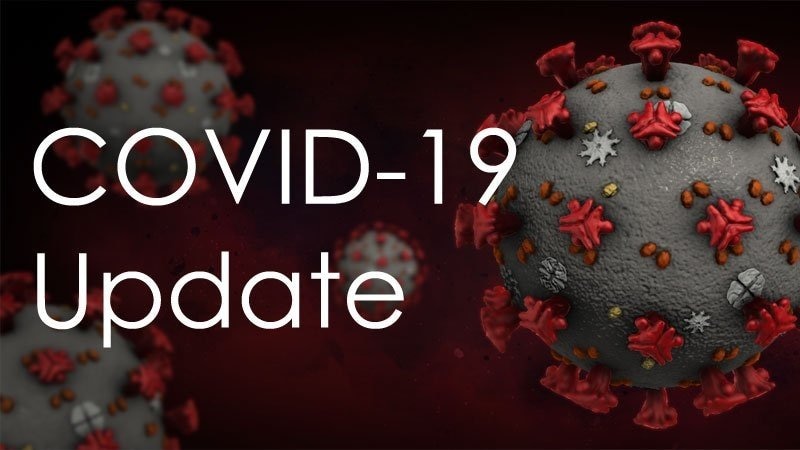Editor’s note: Find the latest COVID-19 news and guidance in Medscape’s Coronavirus Resource Center.
Here are the coronavirus stories Medscape’s editors around the globe think you need to know about today:
Fauci Warns of 100K Cases a Day
Anthony Fauci, MD, head of the National Institutes of Allergy and Infectious Diseases, warned US senators in a committee hearing today that the nation could see 100,000 new COVID-19 cases per day if the country does not mitigate its rising number of infections.
Fauci said it is worrisome that people continue to congregate, often without masks, and that some were “jumping over and avoiding and not paying attention to the guidelines” issued by the White House Coronavirus Task Force.
“We’re going to continue to be in a lot of trouble and there’s gonna be a lot of hurt if that does not stop,” he said.
HCQ Trial to Resume
A global randomized controlled trial testing whether the antimalarial drugs hydroxychloroquine and chloroquine can prevent COVID-19 in healthcare workers or other high-risk workers will resume, Reuters reports. The UK Medicines and Healthcare Products Regulatory Agency had paused the COPCOV trial after another British trial found hydroxychloroquine to have no benefit for already-infected COVID-19 patients.
“Hydroxychloroquine could still prevent infections, and this needs to be determined in a randomized controlled trial,” said the trial’s co-leader. “The question whether (it) can prevent COVID-19 or not remains as pertinent as ever.”
Colchicine RCT Results
A randomized, open-label trial the authors call “hypothesis-generating” leaves open the possibility that the anti-inflammatory drug colchicine could be a treatment for COVID-19.
“While our study did not directly evaluate the mechanisms of action,” the study’s lead author told Medscape Medical News , “we believe the key lies on its anti-inflammatory properties combined with an antithrombogenic effect that was indeed observed in our cohort and has also been reported in literature.”
RECOVERY: Lopinavir-Ritonavir ‘No Clinical Benefit’
The latest findings from the University of Oxford’s RECOVERY trial of potential COVID-19 drugs show no clinical benefit in hospitalized patients treated with the HIV antiviral lopinavir-ritonavir.
The trial randomly assigned 1596 patients to receive lopinavir-ritonavir and 3376 to usual care, according to a press release describing the findings. The investigators found no significant difference in the primary endpoint of 28-day mortality,and the results were consistent between different patient subgroups. The researchers also didn’t find any evidence of benefit for progression to mechanical ventilation or length of hospital stay.
Contact Tracer Teams
Contact tracing, along with strategic testing, rapid isolation, and supportive quarantine, is a vital way of slowing the spread of COVID-19. Though the tracing workforce has grown quickly–more than tripling in the past 6 weeks–most states do not have enough contact tracers to match their populations, according to an NPR survey.
“We need to have contact tracers in place as fast as we can because it’s one of the strongest tools the states have to prevent another round of surges almost immediately after they reopened,” the chief medical officer of the Association of State and Territorial Health Officials told WebMD Health News.
Wearable Tech May Detect COVID-19
Researchers are testing whether wearable technology and artificial intelligence may be able to detect COVID-19 in people before symptoms emerge, Abraham Verghese, MD, of Stanford and Medscape’s Editor-in-Chief Eric Topol, MD, of Scripps Research Institute discuss in a new podcast episode. The DETECT trial, which Scripps is running, has studied 30,000 people and detected signals from increased resting heart rate, more sleep, and fewer steps that correlate with positive COVID-19 tests.
“We hope to find ways to detect infection beyond testing, because testing will always be a one-off,” Topol said. “Even when we have a home test, it will cost at least $10, $20, or more each time you do it. And it’s valid only for that day. We need something that has a lot more temporal bandwidth so we can see what’s going on in people.”
The Medical Class of COVID-19
Medical students attending school during the pandemic have had to adapt to cancelled classes, missed rotations, new training practices, and remote learning, Medscape Medical News reports.
Many schools hope to have students back and participating in some degree of patient care at non–COVID-19 hospital wards as early as July 1, says the vice chair of education at Stanford’s Department of Emergency Medicine. “This is uncharted territory for medical schools,” he said.
Yet institutions hope to strike a balance between keeping trainees safe and providing necessary on-site learning.
In Memoriam
As frontline healthcare workers care for patients with COVID-19, they commit themselves to difficult, draining work and also put themselves at risk for infection. More than 1500 throughout the world have died.
Medscape has published a memorial list to commemorate them. We will continue updating this list as, sadly, needed. Please help us ensure this list is complete by submitting names with an age, profession or specialty, and location through this form.
If you would like to share any other experiences, stories, or concerns related to the pandemic, please join the conversation here.
Victoria Giardina is Medscape’s editorial intern. She has previously written for The Dr. Oz Show and is currently a national lifestyle writer for Her Campus . She can be reached at vgiardina@webmd.net or on Twitter @VickyRGiardina .
Here’s how to send Medscape a story tip.
For more news, follow Medscape on Facebook , Twitter , Instagram , and YouTube.
